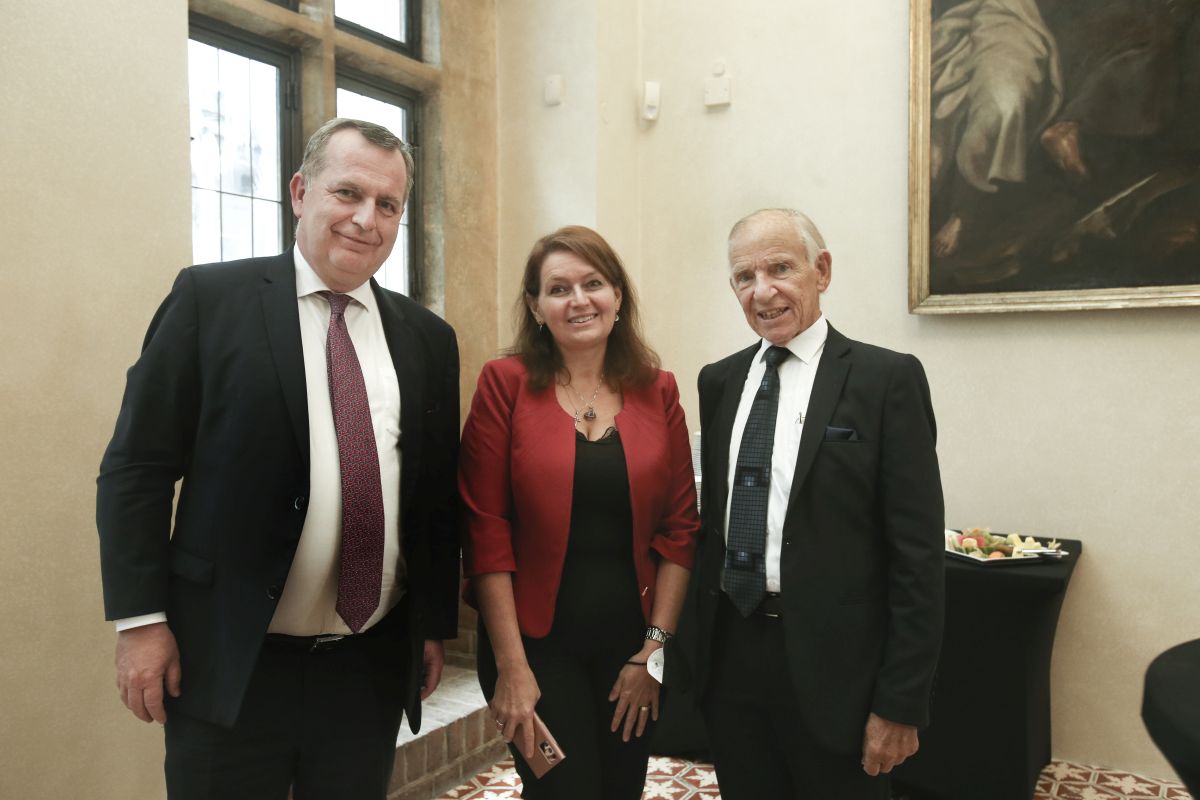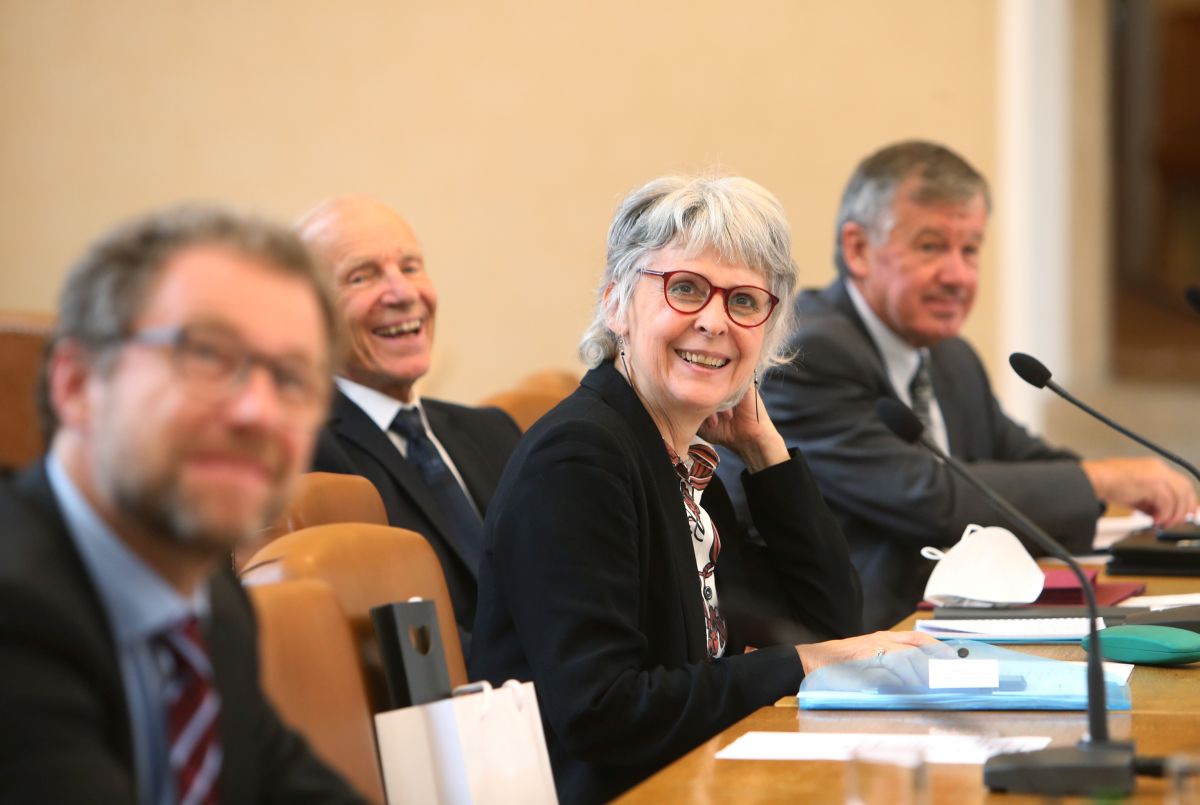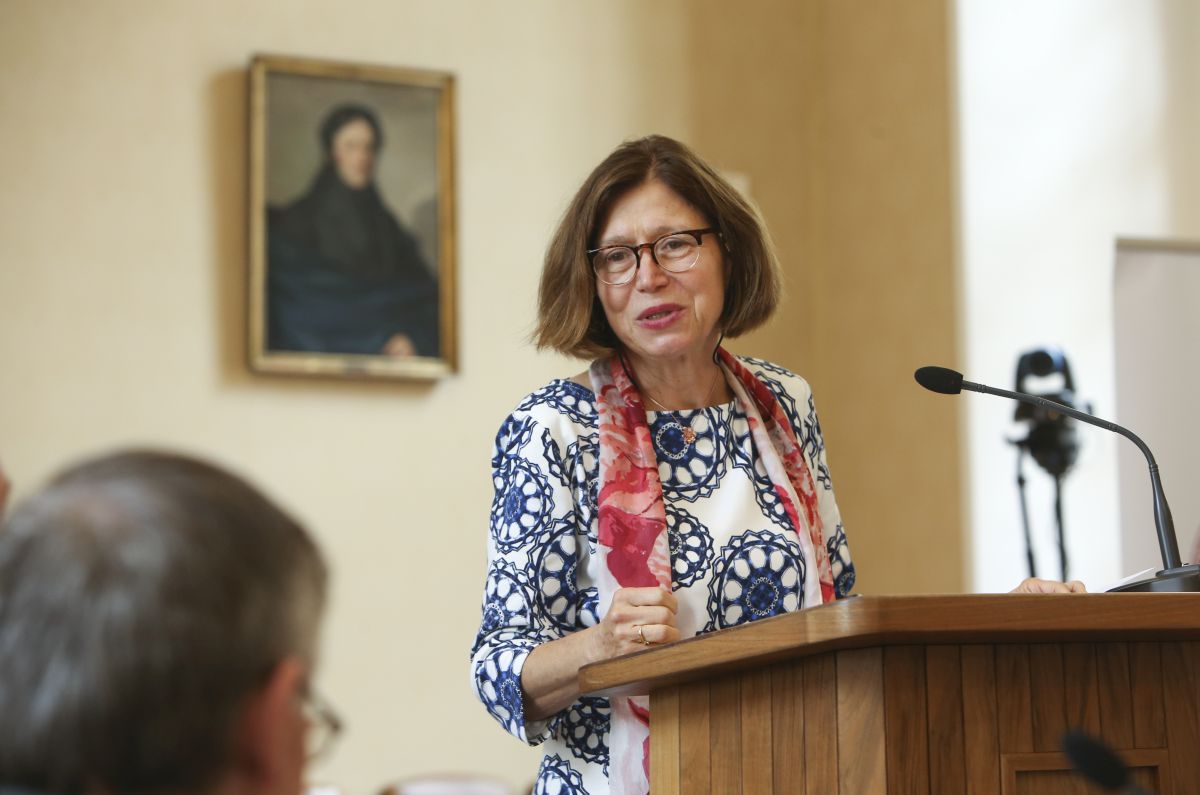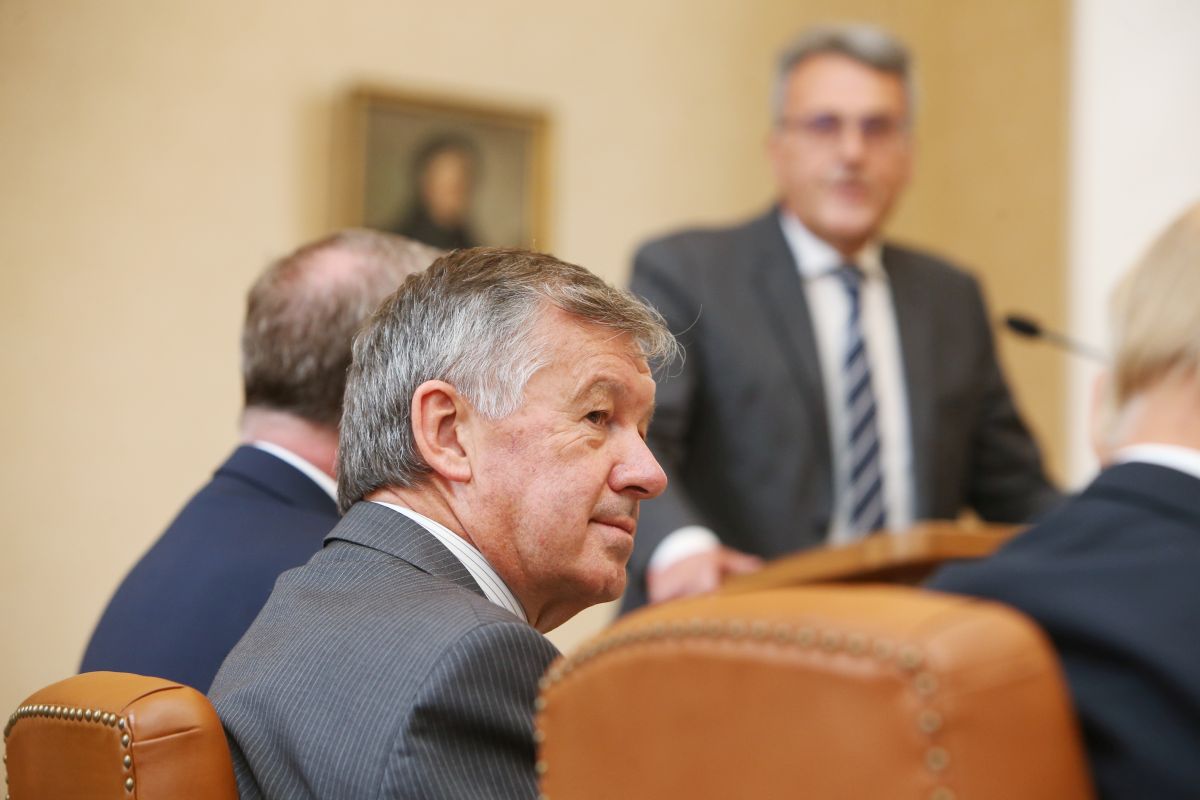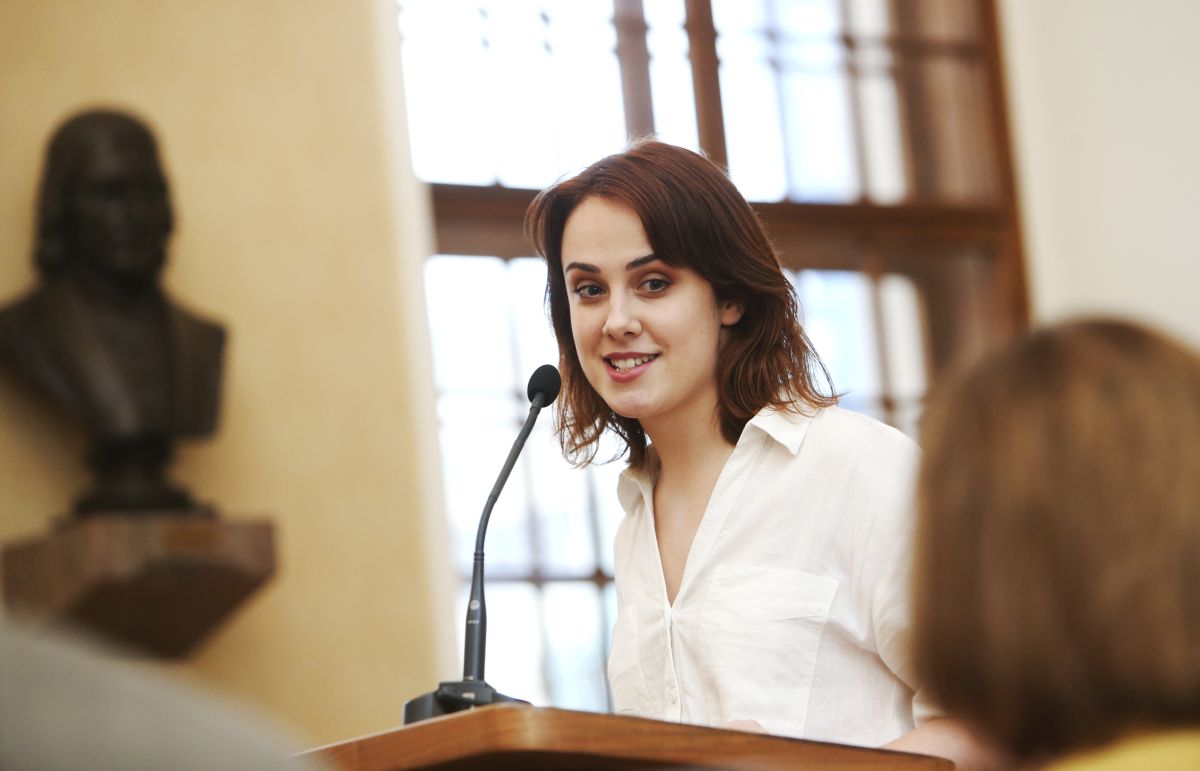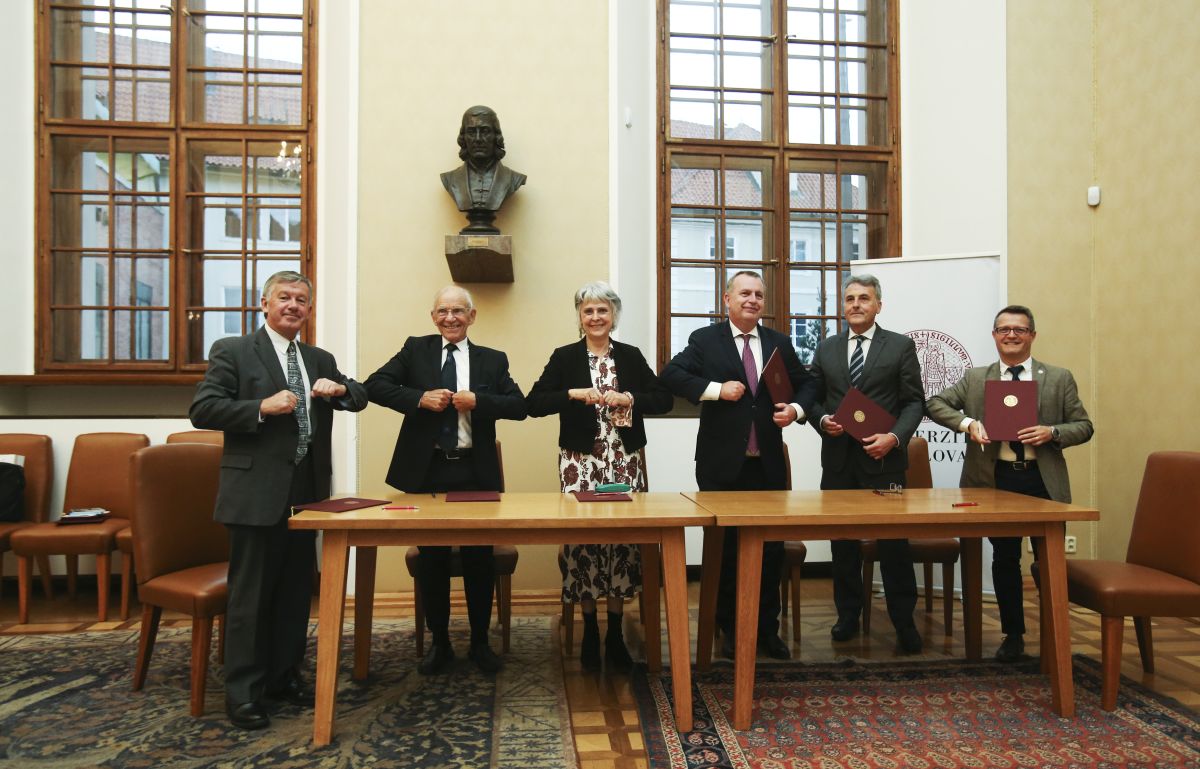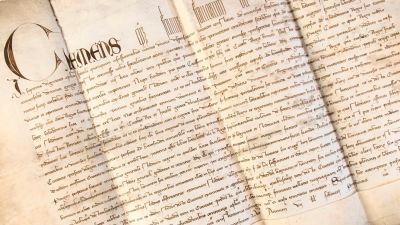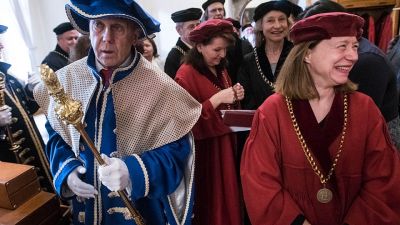Charles University hosted the representatives of key European university networks on Friday, at a special meeting aimed at tackling challenges faced by institutions of higher learning. The Meeting of University networks, took place the Patriotic Hall in the Carolinum, and was opened by Rector Tomáš Zima. For most of the attendees, it was the first time they had met face-to-face since the start of the Covid pandemic.
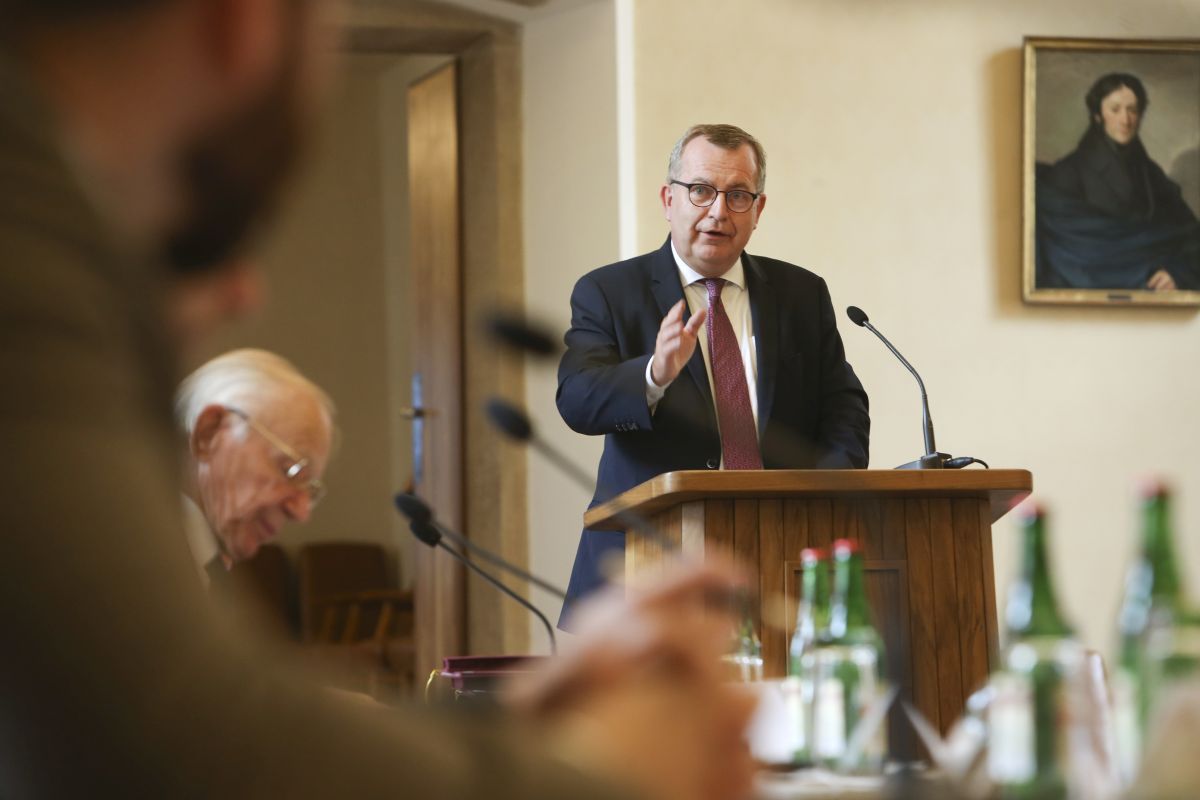
Charles University Rector Tomáš Zima speaks to distinguished guests at Meeting of University Networks on September 24, 2021.
The rector began proceedings by welcoming distinguished guests and speakers, whose efforts, he said, had contributed to “the promotion of internationalisation, learning from each other, sharing knowledge and creating positions towards topics of research and innovation, education, and the central role of universities in society.” Five key speakers addressed the assembly shortly after 1:30 pm: Ludovic Thilly, the chair of the Executive Board of the Coimbra Group, Michael Murphy, the president of EUA, Andrew Graham of Europaeum’s Board of Trustees, Kurt Deketelaere, the Secretary General of LERU, and Luciano Saso, the president of UNICA. The meeting was chaired by CU’s Vice-Rector for European Affairs Lenka Rovná.
With an allotted time of around 15 minutes, each – including Rector Zima – spoke about key issues faced by universities and university networks today – both on the national and European levels, making clear there were areas where universities needed to stand firm (autonomy, funding), show solidarity and provide help (to academics and students in non-democratic countries) but also change from within (relaying a stronger, clearer message to the public about the role universities play and the freedoms they defend).
During the break, Forum spoke with EUA President Michael Murphy (who earlier in the day had taken part in a highly visible meeting with the Czech Rectors’ Conference) who said on the vast majority of the issues, the networks were on the same page.
“There is vast coherence in the messaging and analysis and solutions and there are only a few areas where the emphases of networks differ. And that’s to be expected because the system is very diverse in Europe and different institutions are needed for different purposes. There are research-intensive institutions on one end of the spectrum and regional universities supporting regional societies and economies, specialized universities and so on, on the other. So it is natural that networks form around specialist groups but at the end of the day we agree on 90 percent of what needs to be done, and it is important that society hears a little about it, depending on the sector.”
Regarding the roles played, EUA President Michael Murphy said there would always be a chance of discrepancy in how universities were viewed by the broader public.
“There will always be a tension in this regard. At various times, societies will be very satisfied or not that its needs or priorities are being met by universities, and being the dominant funders, it’s natural that they should try and ensure that universities focus on the things that matter most to it. Which tend to be short-term. Universities, on the other hand, take the view that we have to manage the long-term and that it can be at any time that we have to prioritise research and teaching programmes and a curriculum not to the immediate needs of society but for the long-term. So that at times lead to a power struggle – a healthy one – between government and society and universities.”
The notable guests who spoke on the ocassion, including Michael Murphy, were all awarded gold medals by Charles University Rector Tomáš Zima. Among them was also Europaeum's Andrew Graham, awarded in recognition of the strong reinvigoration of Europaeum that transpired under his leadership. Charles University joined Europeaum in 2001 and has been a strong supporter ever since.
Also on the agenda during Friday’s meeting, which included participation of student network representatives, was an afternoon discussion on autonomy and finally, the signing of the Prague Declaration II, in response to global developments. The first Prague Declaration, back in 2016, was published on the occasion of the 700th anniversary of the birth of the King of Bohemia and Holy Roman Emperor, Charles IV, the founder of Charles University, and was signed by the rector of Charles University, the Czech Minister of Education, representatives of the Coimbra Group, Europeaum, UNICA and representatives of 79 universities throughout Europe and the USA.
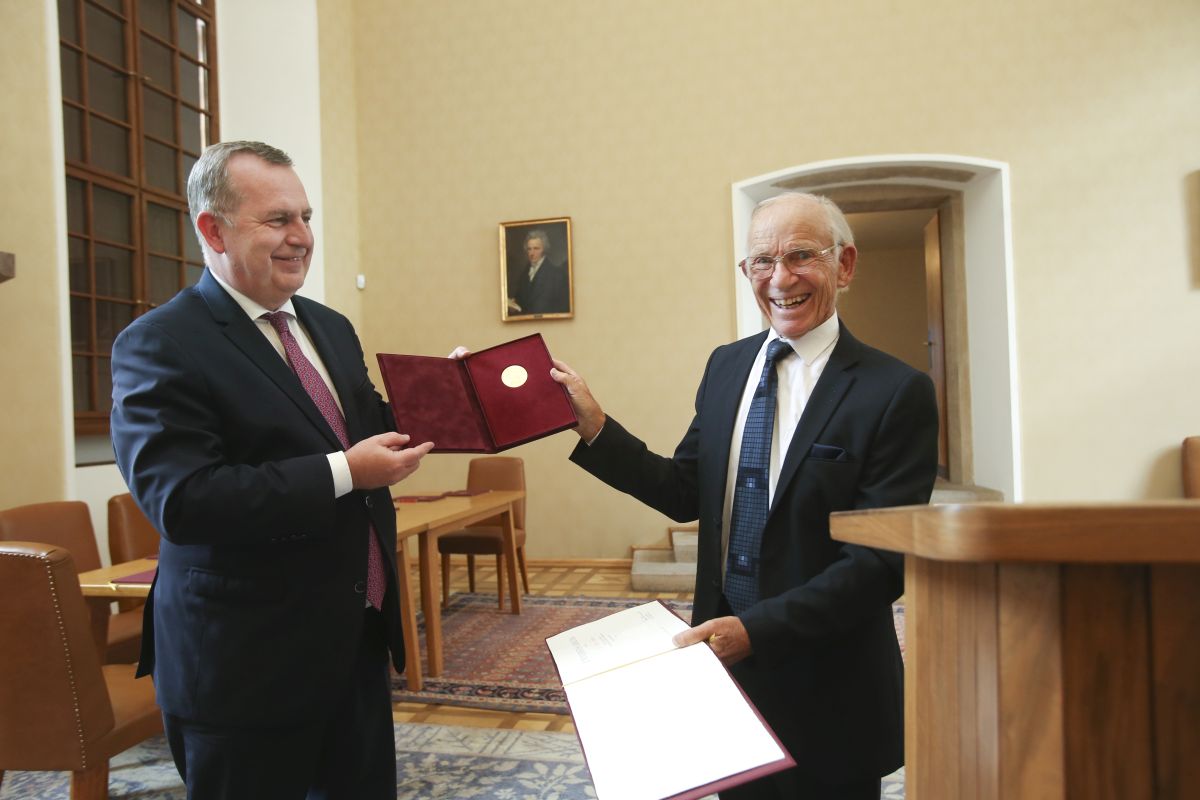
Charles University Rector Tomáš Zima surprises Europaeum's Andrew Graham with a gold medal on September 24, 2021.
Signatories of the new declaration in the text on Friday reaffirmed their commitment to cooperation, the free exchange of ideas, autonomy, democracy, tolerance and humanism. The declaration made the point that five years on the world is “not a safer place” and that values and freedom needed to be upheld and defended, making possible a “common ground for creating the future of global society.”
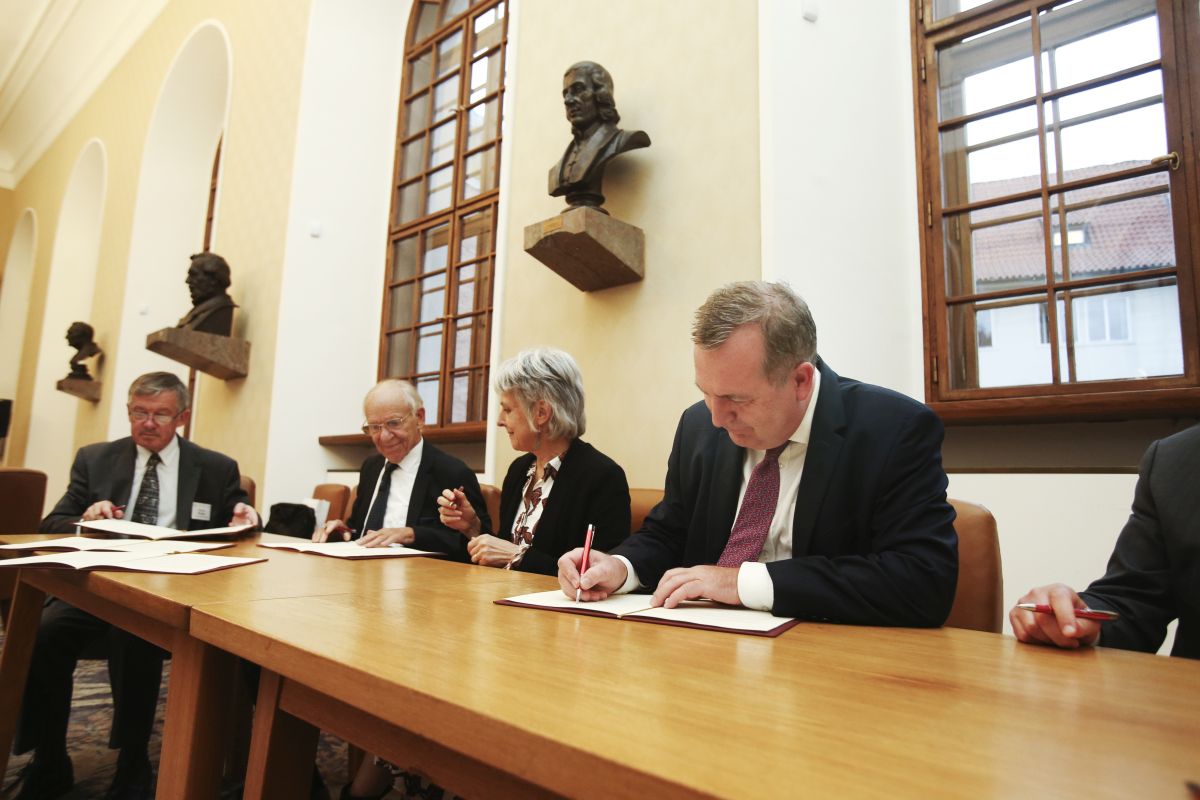
The Prague Declaration II signed by Tomáš Zima and other top university representatives on Friday, September 24, 2021.
Rector Tomáš Zima again:
“As Europeaum’s Andrew Graham said in his presentation a few minutes ago, truth and truthsayers are very important for the future. Populism is on the rise and presents a world that is only black & white but real life is more complicated than that. There are many questions and not always easy answers and the task for us is not to simplify things unduly but rather to offer comprehensive answers.
[Regarding the] last five years the world has changed, one-and-a-half years were swallowed by the pandemic, and we see rising populism, Brexit is behind us, and there are growing questions about sustainability. But Covid also showed there were many people who remained optimistic and did not think of themselves but helped others. I think that is an important message, along with freedom, open-mindedness, and the need to help in places of war and places were conditions are much worse.”


